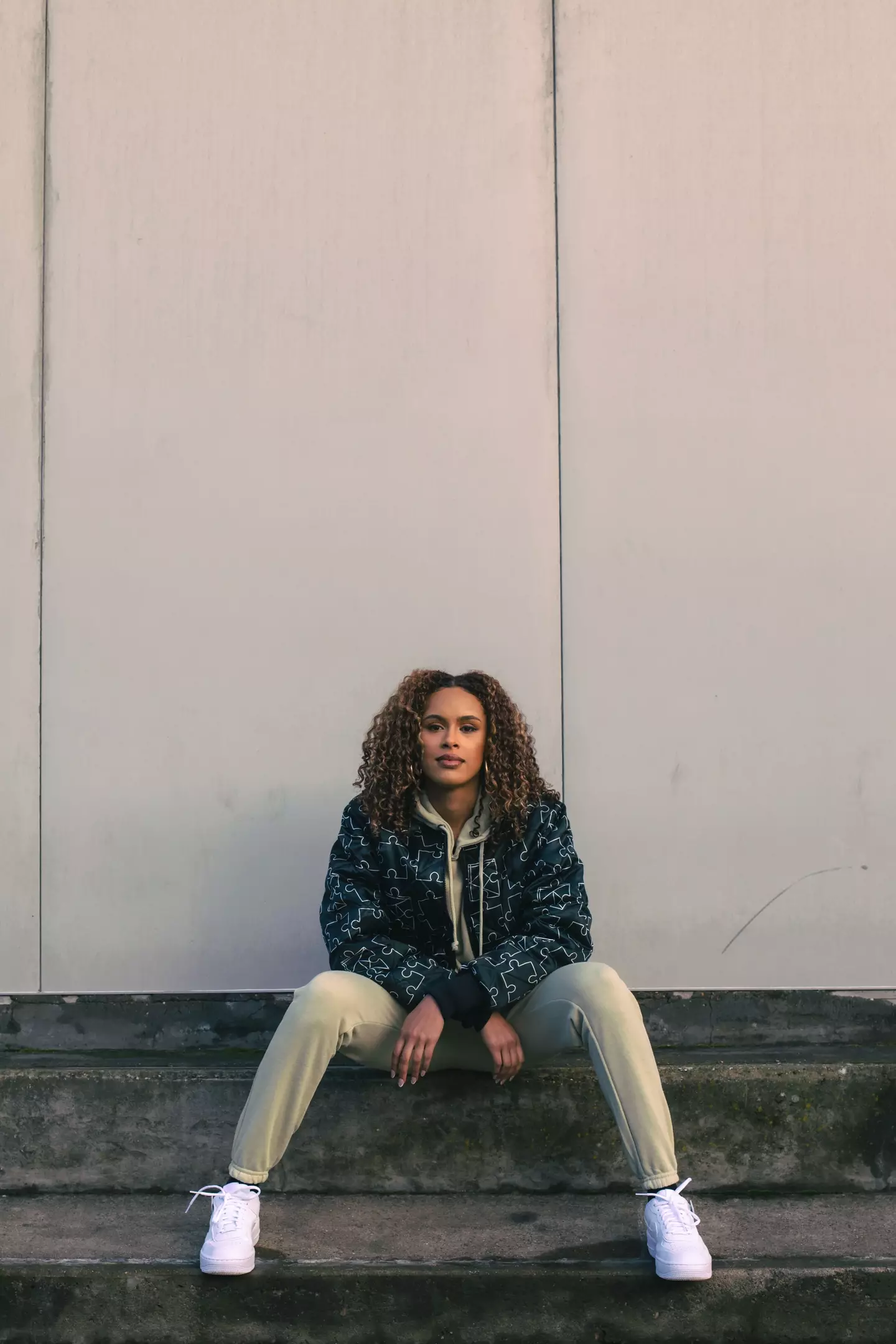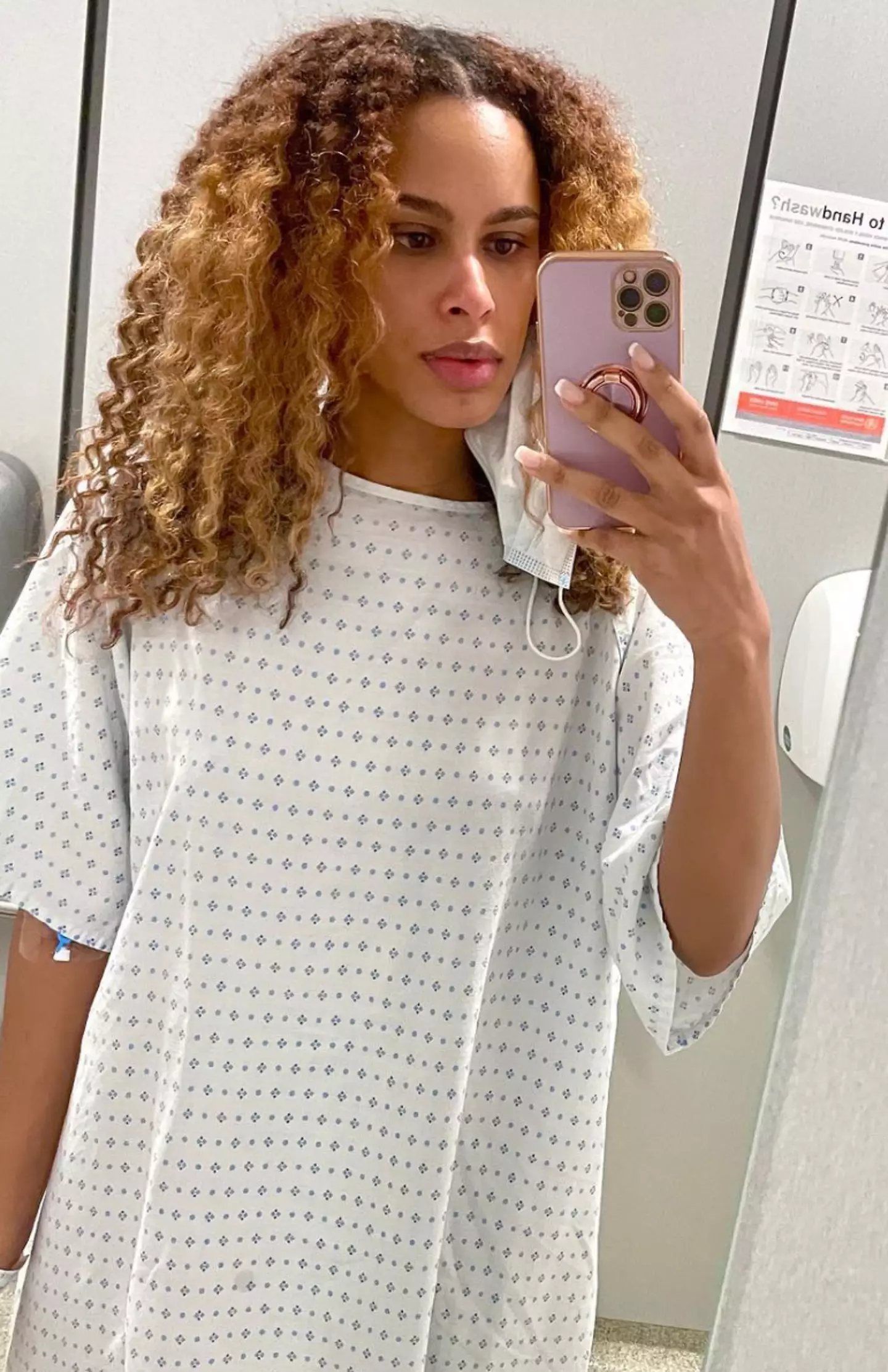.jpg)
Premier League TV presenter Anita Nneka Jones has opened up about how her lifelong struggle with endometriosis has caused years of chronic pain, and led her to decide to freeze her eggs.
The costly procedure was brought to Anita's attention when she learned that her condition had affected her fertility and lowered her egg count.
To mark Endometriosis Awareness Month, Anita has decided to share her story, in the hopes that other women might be inspired to speak up for themselves and look into their own fertility and uterine health.
The multi-sport presenter's health journey has been a long and winding road that all started when she was 14. Two years after starting her period, she was having pains so bad that absent days became a common occurrence. Despite regular trips to the doctor's office throughout her teen years, Anita was never prescribed anything more than pain killers and the pill.
Advert

Speaking to Tyla, she explained: “When you’re that age, you’re having all of these hormonal changes, you’re embarrassed about your body and how it’s developing. So, to go to a doctor’s office and try to explain to them... I didn’t know how to say it, I didn’t have the vocabulary.”
Eventually, she just started to believe that excruciating periods each month was her "cross the bear."
After years of agony - and a lot more doctor's appointments - Anita can more accurately describe the pain her endometriosis causes her.
She says: "You know those metal wire hangers? Imagine one of those being scraped across your insides. Or stabbing in your vagina area. It's so intense that the only thing you can do to relieve the pain is have a hot water bottle strapped to you, being in the foetal position in bed, and having heavy-duty painkillers.”
By her late 20s, she was experiencing intense pelvic pain and blood clots even when she wasn't on her period, but it wasn't until a "friend of a friend" posted to Instagram that she had just been diagnosed with endometriosis, that Anita realised there was more to her suffering.
Realising that she might well also be suffering from endometriosis, Anita felt compelled to "finally fight for [her]self". So, after demanding a gynaecologist referral from her GP and eventually undergoing a laparoscopy, doctors diagnosed endometriosis in three different places; on her abdominal wall, her pelvic side wall, and her large bowel.
Reflecting on the revelation, she said: “Women are great advocates when it comes to fight for someone else, but fighting for themselves – there's something missing there."

After her surgery - and with the additional help of a Mirena coil - Anita's pains finally wore off. During a hospital visit around this time, she "randomly" brought up the topic of fertility to a consultant.
"I didn't even know what it was about but it just seemed like a good thing to ask."
Aged 29 at the time, Anita was told that fertility wasn't something to be a concerned about until she turned 32, so she "put it to the back of [her] mind."
Eventually, after six months of pain-free "euphoria", her endometriosis symptoms returned, and Anita made the "earth-shattering" discovery that many women need to undergo a second surgery for their endometriosis, and she would have to go back to square one.
"When it started to look like I was going to need a second surgery... I reached out to an endometriosis specialist and asked what I should be thinking about."
This time, Anita was finally told to look into her fertility by taking an ovarian reserve test.
She told Tyla: "I wasn't told about this with the NHS, no one told me to think about it. This was off my own back because I was thinking: 'What is the bigger picture here?'" I was really shocked to find out that my fertility levels were low."
Anita was told that if she wanted to have children some day, she should look into egg freezing.
“Egg freezing is a huge investment" said Anita.
"I’d liken it to whether you’re going to get a mortgage for a house. Each case is different but you could be spending up to ten grand or more. It’s strange because I don’t want kids right now, but it’s trying to make plans for my future. I know I would like kids at some point. At that time I was 30, and it was weird making such huge life-changing decisions.”
What really pushed Anita to go for it was the stories of other women who she had met through Endometriosis UK, who have already missed their chance to have children as a result of the condition.
"That was a fear of mine; being put in that same situation." she said. "So, I thought I’m going to take the decision to do this. So, in September I started treatment for the egg-freezing."

Going through egg-freezing is an unpleasant and exhausting process at the best of times; from injecting yourself with hormones and "feeling like a zombie" on different drugs to undergoing some "really invasive scans".
But on top of it all, the procedures cause Anita's endometriosis to flare up even more.
So far, Anita has done two cycles of egg-freezing and has one more to go before she can finally look at getting her second laparoscopy.
On the results thus far, Anita told Tyla: "They would expect a woman between the ages of 30 and 35 to produce between 10 and 15 eggs. In my case for the first cycle it was only four, which was devastating but I was also grateful my body was producing these eggs that could be frozen.”
In her second cycle, she produced three eggs.
"It’s an emotional rollercoaster, and meanwhile you’re trying to go to work, live a normal life, and be kind of yourself. You’ve never been through this before, there’s no rulebook, and the fact that you’re investing in your health is already huge. Whether it pays off is another thing.
"But it’s putting myself first. And a lot of women don’t do that, or we learn too late to do that. Now I’m empowered, I won’t let anyone tell me no."

Asked what she hopes women take from her story, Anita says her most important message is that "painful periods aren’t normal."
"Don’t let a doctor tell you that’s normal. Push to see a specialist, a gynecologist, and then if you have endometriosis, do an ovarian reserve test after your first surgery. We’re not taught these things. And even if you don’t have it, so many women have problems getting pregnant. We don’t know why; I don’t know why.”
“We should have this information out there so we’re empowered. Endometriosis awareness month falls around the same time as international women’s day and equality for women is also needed in the healthcare system.
"At the moment, I think we’re heavily deprived of that due to lack of information, lack of awareness, and we’re just not informed. We’re not given all the information to make decisions that we want for our future.”
According to Endometriosis UK, around 1.5 million women and those assigned female at birth in the UK are currently living with the condition. Typically it takes an average of 8 years for someone to be diagnosed with endometriosis.
If you have been affected by any topics in this article or would like to learn more about endometriosis, head to endometriosis-uk.org.
Topics: Health, Endometriosis